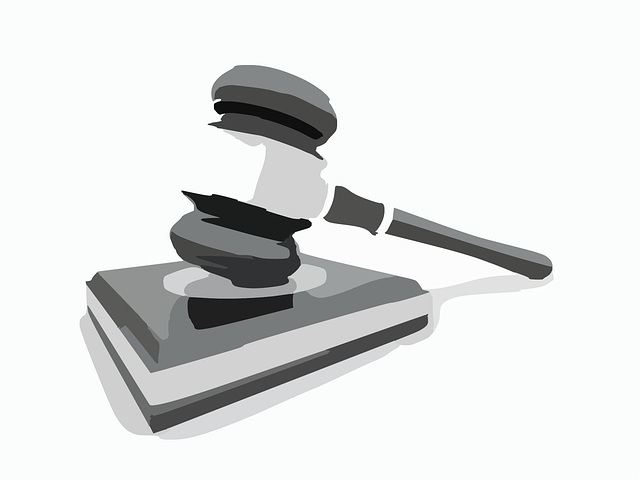White-collar crimes, such as fraud and money laundering, pose complex challenges for Criminal Defense Attorneys. These attorneys are vital in navigating legal complexities, educating juries, and mitigating penalties. They scrutinize evidence, challenge allegations, and employ strategies like negotiating plea deals and questioning witness credibility to achieve favorable outcomes, including charge dismissals or reduced sentences. Effective communication is key, as it simplifies legal jargon and builds trust with clients. This enables attorneys to mitigate penalties in high-stakes cases, protecting their clients' freedom, reputations, and financial stability.
Criminal defense attorneys play a pivotal role in navigating the complex landscape of white-collar crime cases. These specialists are equipped to confront unique challenges stemming from financial and corporate offenses, often involving intricate legal systems and high-stakes consequences. By employing strategic defenses and effective communication, they strive to mitigate penalties, ensuring fair treatment for clients accused of these sensitive crimes. Understanding their crucial role is essential in the ongoing discussion about justice within the legal realm.
- Understanding White-Collar Crimes and Their Unique Challenges
- The Role of Criminal Defense Attorneys in Mitigating Penalties
- Strategies for Building a Strong Defense in White-Collar Cases
- Effective Communication: Navigating Complex Legal Systems for Clients
Understanding White-Collar Crimes and Their Unique Challenges
White-collar crimes refer to non-violent financial crimes committed by individuals in positions of trust or power, often within businesses, governments, or philanthropic and political communities. These offenses include fraud, embezzlement, money laundering, and tax evasion, among others. Unlike street crimes, white-collar crimes are often complex and involve intricate legal and financial jargon, making them uniquely challenging for both prosecutors and defendants. Understanding the nuances of these cases is crucial for Criminal Defense Attorneys as they navigate through a web of regulations, policies, and potential loopholes to mitigate penalties in white-collar crime cases across the country.
The unique challenges posed by white-collar crimes require attorneys to delve into detailed financial records, interpret complex legal statutes, and often defend against accusations that span multiple jurisdictions. Jury trials in such cases are not just about presenting a compelling defense but also educating the jury on intricate financial matters. Skilled Criminal Defense Attorneys must be adept at simplifying these complexities while navigating ethical considerations, ensuring their clients receive a fair trial despite the high-stakes nature of white-collar crime allegations.
The Role of Criminal Defense Attorneys in Mitigating Penalties
Criminal Defense Attorneys play a pivotal role in mitigating penalties for individuals accused of white-collar crimes. In these complex cases involving corporate fraud, financial misdeeds, and other business-related offenses, attorneys serve as champions for their clients’ rights and interests. They navigate intricate legal landscapes, scrutinizing evidence and challenging the prosecution’s claims to build a robust defense strategy.
Through skilled negotiation, strategic pleadings, and compelling argumentation, these attorneys strive to achieve the best possible outcome for their diverse clientele—from corporate executives to entrepreneurs and even those from the philanthropic and political communities. Their goal is not only to protect their clients’ freedom but also to safeguard their professional reputations and financial stability, ensuring that justice is served while mitigating the harsh penalties often associated with white-collar crime cases.
Strategies for Building a Strong Defense in White-Collar Cases
In white-collar cases, where corporate and individual clients face complex legal challenges, a robust defense strategy is paramount. Attorneys must be adept at navigating intricate financial and regulatory landscapes to build a strong case. One key approach involves exploring every available avenue for mitigating penalties. This can include negotiating plea deals, presenting compelling evidence of lack of intent or cooperation with authorities, and leveraging prior good conduct as mitigating factors.
A comprehensive defense strategy may also involve challenging the admissibility of evidence, questioning the credibility of witnesses, and exposing any procedural irregularities. By employing these tactics, attorneys aim to achieve the best possible outcome, whether it results in a complete dismissal of all charges or significantly reduced sentences across the country.
Effective Communication: Navigating Complex Legal Systems for Clients
Effective communication is a cornerstone for criminal defense attorneys representing clients in complex legal systems. When navigating the intricate web of laws and regulations, especially in white-collar crime cases, clear and concise language is paramount. Attorneys must translate often confusing legal jargon into comprehensible terms for their clients, ensuring they understand their rights, options, and potential outcomes. This approach not only facilitates informed decision-making but also builds trust between attorney and client.
Moreover, successful communication strategies enable attorneys to mitigate penalties in white-collar crime cases. By effectively conveying the nuances of the law and the unique circumstances of each case, defense attorneys can achieve extraordinary results for their clients, often leading to reduced charges or sentences. This skill is particularly valuable when representing individuals within philanthropic and political communities, where the stakes are high and reputational damage significant. Ultimately, a criminal defense attorney’s ability to communicate complex legal matters in a relatable manner is a key differentiator in securing favorable outcomes for respective business interests and personal freedom.
Criminal defense attorneys play a pivotal role in mitigating penalties for individuals facing white-collar crime charges. By leveraging strategic defenses, effective communication, and a deep understanding of complex legal systems, these professionals can significantly improve outcomes for their clients. Through meticulous investigation, expert witness testimony, and persuasive argumentation, they navigate the intricate landscape of white-collar crime cases, ensuring fair treatment and, where possible, minimizing penalties. In this competitive legal environment, hiring a skilled criminal defense attorney is not just an option—it’s a necessity.






